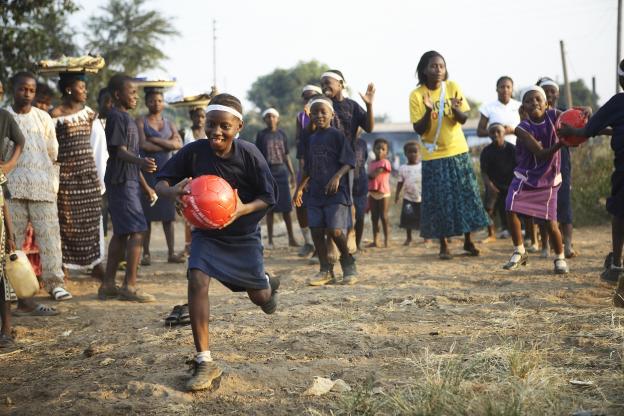 Every day, with every new improvement to technology, the world seems to shrink while the possibilities grow. It wasn’t too long ago that someone on the other side of the globe would be almost unreachable, but thanks to advancements in everything from computing to teleconferencing, the far side of the world is as close as a few button touches.
Every day, with every new improvement to technology, the world seems to shrink while the possibilities grow. It wasn’t too long ago that someone on the other side of the globe would be almost unreachable, but thanks to advancements in everything from computing to teleconferencing, the far side of the world is as close as a few button touches.
There are options today that simply didn’t exist a few years ago in all aspects of life, from business to communications to education. And with those new options also comes a new sense of responsibility.
It is a lesson that Polycom and its philanthropic division understand well, and one that it is in a unique position to act on.
Earlier today Polycom and the humanitarian organization Right To Play announced that they would be joining forces to provide kids in less fortunate surroundings, the means to take lessons in sports and play from teachers around the world.
“We decided to look around and find something that met up with our values, who we aspire to be, and was making a real impact,” Ashley Goldsmith, Executive Vice President of Human Resources, and the executive sponsor for the Polycom Foundation said. “Not just in the US, but with a broad global reach in a way that impacts the future.”
Right To Play is an organization with a worldwide reach whose goal is to bring sports to kids around the world that may otherwise not have those opportunities. Sometimes that may be due to geographical remoteness, other times it may be due to the political climate of the area.
“They bring play to communities that are impacted by war, disease, and poverty,” Goldsmith said. “By bringing that play, they not only bring some levity to those children’s lives, they also teach some really great skills like how to deal with adversity, teamwork, leadership, skills,”
The idea is that introducing sports to kids can offer them tools they can use to grow and learn. Besides just the enjoyment sports can give, and even the distraction they can offer in areas where distractions are few and far between, organized sports can help develop leadership skills, teamwork, and even the knowledge of how to lose graciously.
But it isn’t always practical or possible to send teachers around the world. Both logistically and financially it can prove to be difficult, and that is where Polycom steps in. Polycom Foundation will donate all the video conferencing equipment necessary to allow teachers to offer instruction to anyone, anywhere from either Right To Play’s Toronto headquarters, or one of the several region satellite office across the globe. That also increase the pool of teachers available.
“More trained local coaches and community leaders means more children around the world will be able to participate in Right To Play programs,” Johann Olav Koss, Right To Play founder and a four-time Olympic gold medalist said in the official statement. “Polycom’s support and video collaboration technology will further strengthen our programs and help us use the power of sport and play to transform the lives of so many more children. With the ability to use video for training and other initiatives, we can reach even more children and get them playing and succeeding in life.”
The teachers will use more complex video conferencing equipment that uses state of the art technology. The students, however, will use whatever technology best suits their situation. That may mean a video conferencing center of their own, or it could be something as simple as a tablet. Regardless, the students will have the opportunity to receive instruction.
Since its founding in 2000, Right to Play has begun projects in over 20 countries, and reached over one million children. That made them a perfect fit for Polycom.
It isn’t the first time that Polycom has done something like this and used its technology to connect people around the world. Working with the organization Medical Missions for Children, more than 45,000 kids around the world have been put in touch with over 700 doctors.
It is an incredible idea, and one that simply wasn’t available even a few years ago. The word “connectivity” has gone beyond the confines of simply being a buzzword, and is instead a way of life for many. It makes sense to use that connectivity to help people around the world.
“The Polycom Foundation has been doing philanthropic work for a number of years, it has been important to Polycom for a long time in our history,” Goldsmith said. “Giving back, being involved in the community is important to us.”


